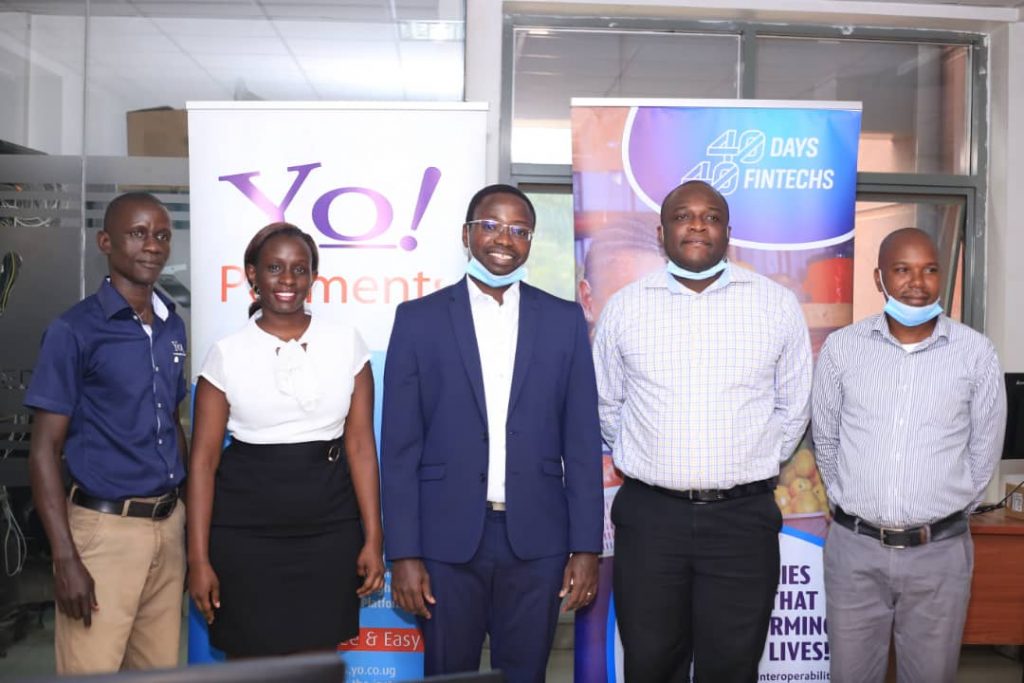
Mobile wallets have over the past few years become a buzzword in most countries across the world, including Uganda.
However, one name stands out in Uganda when it comes to mobile wallets; that is Yo Uganda, a technology solutions company that braved to venture into the world of the unknown.
Established in 2006, the company entered the market offering a low cost international call service before venturing into mobile technology to provide Value-Added-Services.
Solutions such as mobile money, SMS, Unstructured Supplementary Services Data (USSD) gateways, Interactive Voice Response (IVR), voice solutions and custom-developed applications were introduced to the market and were tailored to its clients’ needs, according to company’s managing director Gerald Begumisa.
This followed the launch of MTN mobile money in 2009 and Kenya’s M-Pesa, which had been launched two years before MTN’s mobile money services.
Like any agile company, Yo Uganda later ventured into the mobile payments space. This saw it launch the Yo Payment, a mobile money payments and mobile commerce aggregation system that enables businesses to receive payments from their customers via mobile money as well as make mobile money payments to any mobile money account holder.
It facilitates airtime transfers, integrating with banks, utilities and individuals and businesses that wish to use mobile money networks to accept or make payments.
“When mobile money was first launched, the focus was person–to-person and the recipient would immediately go to a nearby agent to withdraw cash. So we saw an opportunity to enable businesses and other organisations to take advantage of the mobile money service in a way that would enable them reduce their costs and reduce on the risks of keeping cash at their premises,” Begumisa said.
It targeted three sectors including merchants, corporates and financial institutions.
Under the merchant sector, Yo Uganda enables businesses to securely accept mobile money payments for their goods and services through any channel of their choice, depending on their needs while under corporates; it enables organisations transform from cash to digital form of payment, using mobile money.
They can also use the bulk payments service to securely and conveniently disburse funds directly to the mobile money wallets of multiple beneficiaries.
Under the financial institutions sector, Yo Uganda provides a solution that enables institutions like banks, micro finance institutions and Saccos, among others to accept deposits through the mobile money channel and also enable their customers to withdraw funds from their accounts directly into their mobile money wallets.
In partnership with financial institutions, Yo Uganda also tapped into money remittances, where it would enable remitters to deliver remittances directly into beneficiaries’ wallets, in partnership with international remitters.
Bringing farmers onboard
Begumisa said that while mobile money was already popular by 2010, there was still a big gap especially in rural areas where farmers were skeptical about adopting digital finance.
However, in 2015, Yo Uganda partnered with the United Nations Capital Development Fund (UNCDF) and telecoms to sensitize and enroll farmers onto mobile payment systems.
The focus was mainly on three value agricultural value chains including coffee, seed oil and dairy, in Eastern, Northern and Western Uganda, respectively.
Over 135,000 farmers have so far been on-boarded on the digital ecosystem so far, bringing them into the financially included people bracket, which currently stands at 78%. This is also in line with the ongoing efforts to boost financial inclusion and this explains why Yo Uganda is among the firms participating in the 40-days-40-FinTechs initiative organised by HiPipo, in partnership with Crosslake Tech, ModusBox and Mojaloop Foundation.
The initiative seeks to enable FinTechs to innovate solutions that facilitate cross-network financial transactions at minimal risks to enhance access to financial services.
Running for 40 days, the project will see the participating 40 FinTechs acquire interoperable development skills to improve access to financial services, using the Mojaloop open source software.
The HiPipo CEO Innocent Kawooya noted that achieving full financial inclusion requires collaborative efforts and this explains why HiPipo organised the 40 Days 40 fintechs initiative to bring together players with different solutions so as to work together to address people’s financial needs.
He added that COVID-19 has proved that the technology sector is the savior of so many economies, given an important role it has played during this crisis across the globe.
Kawooya equated Yo Uganda’s mobile payments journey to that of Facebook and HiPipo, which started as a social media and entertainment platforms, respectively to now venturing into digital financial services.
“When you are able to show people the value of having mobile devices and using connectivity to communicate, then you can easily show them that even their money can be put on their phones and kept safely there,” he said.
